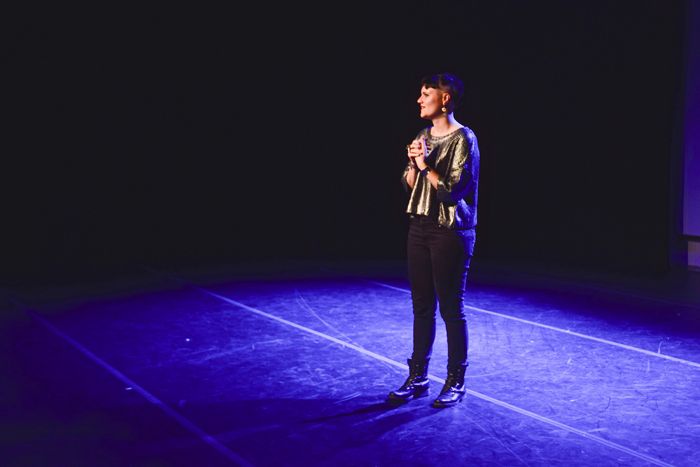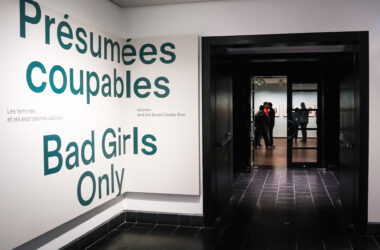The film lesbian ARTivism: current realities is a frank documentary that showcases the experiences of a variety of lesbian artists from around the world. On Oct. 24, at Maison de la culture du Plateau Mont-Royal, the film premiered to an audience including director kimura byol-nathalie lemoine, producer Johanne Coulombe, and many of the artists who appeared in the film.
In the summer of 2016, the University of Ottawa hosted a conference bringing together lesbian artists from a range of professions, age groups, and nationalities. The symposium specifically focused lectures and seminars on the role of lesbian “artivists”—activists who use various art forms as their medium to advocate for change—within the contexts of globalization and intersectionality.
The documentary touched on themes ranging from questions of self-representation and archiving, to the nature of art as a means to advocate for lesbian issues. In each section, snippets from some of the conference’s speakers are shown in a talking-head style. Coulombe, one of the head organizers of the conference and a producer of ARTivism, decided to record the event and tasked kimura-lemoine with editing the compiled footage.
Coulombe pursued the project as a means to bring visibility to gay artists.
“We [lesbian activists] work hard but are not seen or heard,” ze said.
ARTivism was made to get a message out. Through an artistic lens, Coulombe and kimura-lemoine tell viewers a story of lesbian empowerment and self determination.
Despite its empowering message, ARTivism falls prey to the faults of many other independent movies lacking in big studio budgets. Transitions are repeatedly cut-and-dry, and the film lacks a unifying narrative from start to finish. This speaks to a broader lack of funding that queer and activist filmmakers face. After seeing it in its entirety, one can appreciate the documentary for its content and overarching message about the diversity within lesbian movements, regardless of its cut-and-dry format.
ARTivism sheds light on the opinions of a diverse cast of lesbian activists and the work that they do. From a young woman describing her queer experiences integrated with her Indigenous identity, to the older symposium participants detailing their time coming out in the 1960’s and 70’s, kimura-lemoine does an excellent job compiling the wide array of topics into accessible, bite-sized formats. Zer organization of the documentary proves how individuals formulate incredibly different views about what it means to be a lesbian and what they should do in terms of activism.
“For me, my part [in making this film], was to [make sure that] everyone, every age, would be represented across all types of disciplines,” said kimura-lemoine.
ARTivism serves as an overview of this wider population. kimura-lemoine and Coulombe’s work is as a rousing addition to the greater narrative of marginalized peoples around the world.








